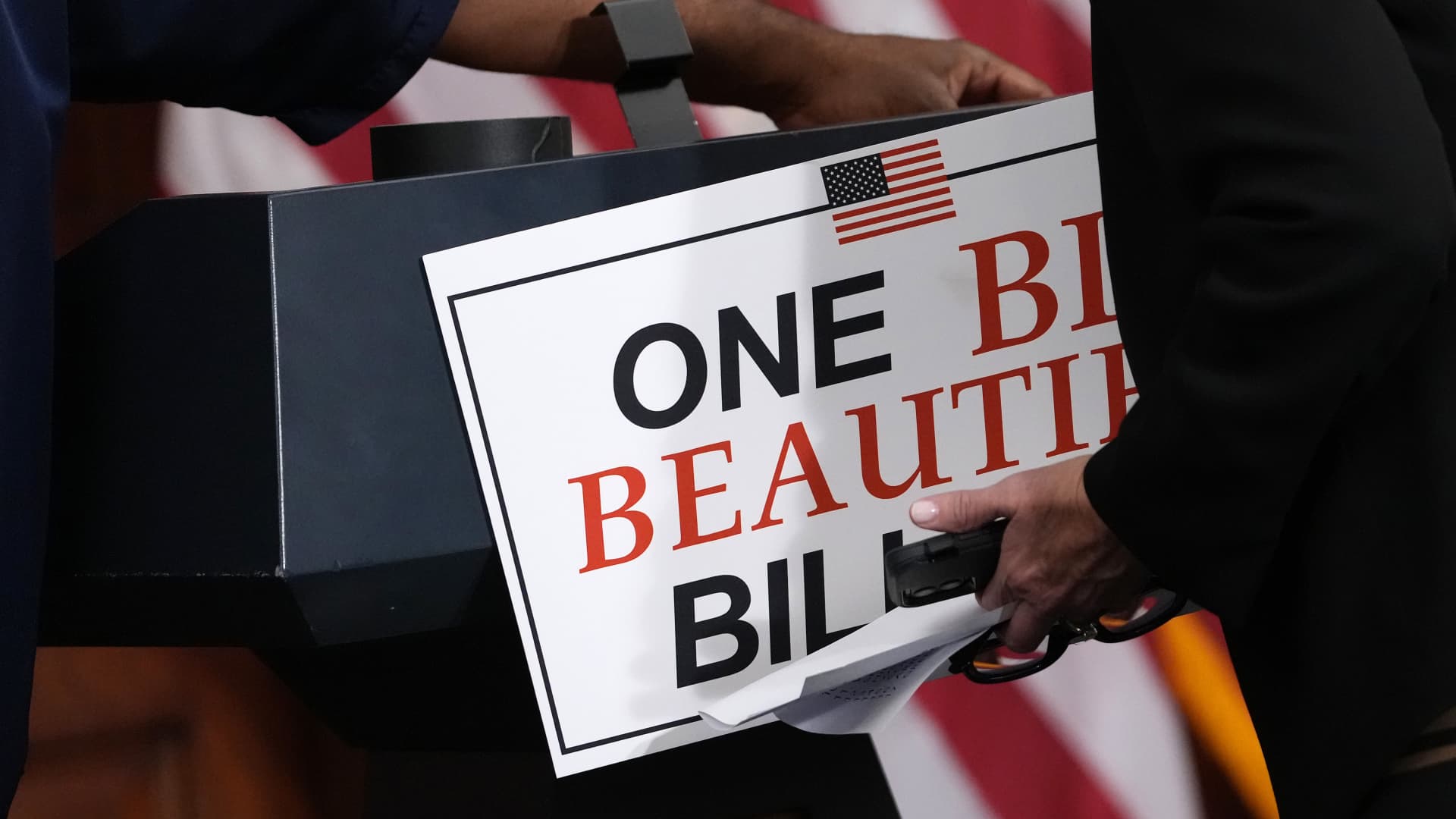Aleksandarnakic | E+ | Getty Images
Denmark has moved to increase its retirement age to 70 — making it the highest retirement age in Europe.
Yet it may be difficult for the U.S. to follow its lead.
The new change in Denmark will apply to public pension retirements starting in 2040. Since 2006, the country has been adjusting its retirement age to reflect changes in life expectancy.
The U.S. does not technically have an official retirement age. At age 65, individuals become eligible for Medicare coverage. At age 66 to 67, depending on date of birth, an individual becomes eligible for full Social Security benefits based on their earnings record.
More from Personal Finance:
House Republican tax bill favors the rich
Some lawmakers want to defer capital gains taxes for mutual funds
What the House GOP budget bill means for your money
However, those individuals who wait until age 70 to claim Social Security retirement benefits stand to get the biggest payout — an increase of 8% for each year beyond full retirement age. (The full retirement age is when beneficiaries are eligible for 100% of the benefits they’ve earned based on their work records.)
Yet few people wait until age 70 to claim benefits. While more than 90% of individuals would benefit from delaying Social Security until that age, only about 10% actually do, according to a 2023 paper from the National Bureau of Economic Research.
While age 70 is not the official U.S. retirement age, it is the threshold based on economists’ definition — the age at which you can’t accrue any more benefits, according to Teresa Ghilarducci, a labor economist and professor at The New School for Social Research.
“In the United States, it’s been 70 for decades, and we had the highest retirement age than any other country for years,” Ghilarducci said.
Retirement age in the U.S. up for debate
Yet there are efforts to officially bump up the U.S. retirement age higher.
In 1983, Congress passed legislation to gradually raise the full retirement age for Social Security from 65 to 67. That change is still getting phased in today, with people born in 1960 and later subject to the higher 67 retirement age.
In December, an amendment to raise the full retirement age to 70 was introduced by Sen. Rand Paul, R-Ky., during last-minute efforts to advance legislation that increased Social Security benefits for certain public pensioners.
The bill, the Social Security Fairness Act, was voted into law. However, the proposal to raise the retirement age was struck down.
Paul called for raising the retirement age by three months per year until it reached age 70, to reflect current life expectancies. The change would have created nearly $400 billion in savings for the program, while the Social Security Fairness Act added $200 billion in costs to the program over 10 years.
Other Republican proposals have likewise called for raising the retirement age.
The Social Security Administration faces looming depletion dates for the trust funds it relies on to help pay benefits. To help resolve that issue, lawmakers may consider raising taxes, cutting benefits or a combination of both. Raising the retirement age is effectively a benefit cut.
Like the changes enacted in 1983, raising the retirement age could be on the menu.
Denmark’s move ‘sends a signal’ to work longer
Urbazon | E+ | Getty Images
Denmark’s move to raise the retirement age to 70 is not a surprise, experts say.
In 2023, research published by the Danish Center for Social Science Research found increasing good health and educational resources for 60- to 70-year-olds, along with higher demand for older workers, could point to retirement age increases in the future.
In 2025, Denmark residents can retire with public pensions when they are 67. That will gradually increase to age 70 as of 2040.
“That means simply that younger people today will have to work longer before they can go on retirement,” said Jesper Rangvid, professor of finance at the Copenhagen Business School and co-director of its Pension Research Centre.
That retirement age affects everybody entitled to basic public pension income, according to Rangvid. However, those with private pension savings may retire earlier.
“There’s nothing that prevents you from retiring earlier if you have the funds and the means to do so,” Rangvid said.
Denmark does offer options for early retirement, including an early pension. However, raising the retirement age conveys a message, Rangvid said.
“It sends a signal that this is what the positions would like, that you should work longer,” Rangvid said.
Retirement age increases in U.S. may be problematic
Anchiy | Istock | Getty Images
Retirement experts say raising the U.S. retirement age may not present the same solution for the population that it does in Denmark.
Denmark has a much more “equal society” when it comes to income, wealth, education and life expectancy compared to the United States, said Alicia Munnell, senior advisor at the Center for Retirement Research at Boston College.
In the U.S., government data shows a stark difference between the life expectancy for those at the bottom and top income quartiles, Munnell said.
“When you have such a big, big difference, any across-the-board increase in the retirement age would be foolish,” Munnell said. “It’d be immensely harmful to those at the bottom who already receive benefits for a shorter period of time.”
A policy to raise the retirement age may also be problematic for another reason — it would take time to phase the change in, according to Andrew Biggs, senior fellow at the American Enterprise Institute.
For example, Congress may enact a higher retirement age that starts to go into effect in 10 years, and then it would take 30 years for people with the higher retirement age to go through the system.
While moving the age from say 67 to 69 would produce savings for the program in the long run, “they’re going to need the money right now,” Biggs said.
Retirement age and the economy
The welfare reform that began in Denmark in 2006 — whereby the retirement age increased with life expectancy — has been “extremely important” for the country’s economy, according to Rangvid.
“We have basically no public debt at all,” Rangvid said.
In contrast, the U.S. faces high national debt that requires the country to spend more on interest payments than on the military.
Budget legislation that is currently under consideration in Congress could add an estimated $3.3 trillion to the debt including interest, according to the Committee for a Responsible Federal Budget.
That package would not touch Social Security or its retirement age. However, other proposals have suggested that change, a benefit cut that would be a “pretty powerful lever” toward helping to resolve the program’s funding issues, according to Munnell.
One proposal scored by the Social Security Administration’s actuaries found raising the full retirement age to 70 would eliminate 26% of the program’s 75-year shortfall.


 Accounting1 week ago
Accounting1 week ago
 Personal Finance1 week ago
Personal Finance1 week ago
 Accounting1 week ago
Accounting1 week ago
 Finance1 week ago
Finance1 week ago
 Economics1 week ago
Economics1 week ago
 Economics1 week ago
Economics1 week ago
 Economics1 week ago
Economics1 week ago
 Personal Finance1 week ago
Personal Finance1 week ago












